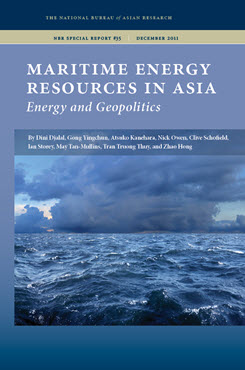Disputed South China Sea Oil in Context
This essay responds to the perception that the South China Sea (SCS) is rich in seabed energy resources and critically assesses the potential of the sea’s conventional crude oil reserves to mitigate national and regional energy security challenges.
EXECUTIVE SUMMARY
This essay responds to the perception that the South China Sea (SCS) is rich in seabed energy resources and critically assesses the potential of the sea’s conventional crude oil reserves to mitigate national and regional energy security challenges.
MAIN FINDINGS
- The anticipated peaking of world oil production before 2015 should be considered a major threat to stability in Southeast Asia. Volatile oil prices and altered terms of trade will have a severe and disproportionate impact on the region’s economies, which are characterized by heavy reliance on imported oil.
- SCS oil reserves are overvalued in terms of energy security potential. Reliance on imported oil is driven both by increasing consumption and declining productivity from existing fields. Combined, these factors far exceed the production capacity of optimistic estimates for SCS reserves
- While the export value of SCS reserves will increase with rising oil prices, their relative contribution to energy security will decline. SCS reserves will constitute a smaller share of future supply as demand for imported oil increases. A secure supply of imported oil is therefore far more significant to Southeast Asia’s energy security than the oil resources located in disputed regions.
POLICY IMPLICATIONS
- Stakeholders must face the inconvenient reality that SCS reserves will not significantly improve regional energy security. Placing too much value on SCS reserves may serve to entrench oil-intensive practices and paradoxically increase oil dependence, thereby reducing energy security.
- The value of SCS reserves as a transitional resource is contingent on their rapid development. It is therefore in the best interest of each stakeholder country to reach a compromise on resource ownership as soon as possible.
- Energy security in the SCS region depends primarily on sea lane security, due to rising demand for oil imported from the Middle East. Comparatively, disputed SCS oil resources are of minor importance.
- Energy policy needs to shift from securing supply-side resources to placing more emphasis on demand-side efficiency measures and alternative energy carriers. Pursuing a policy of oil for energy security is pursuing a policy of diminishing returns; it will cost more, increase greenhouse gas emissions, further entrench oil dependence, and ultimately increase vulnerability to exogenous supply threats.


